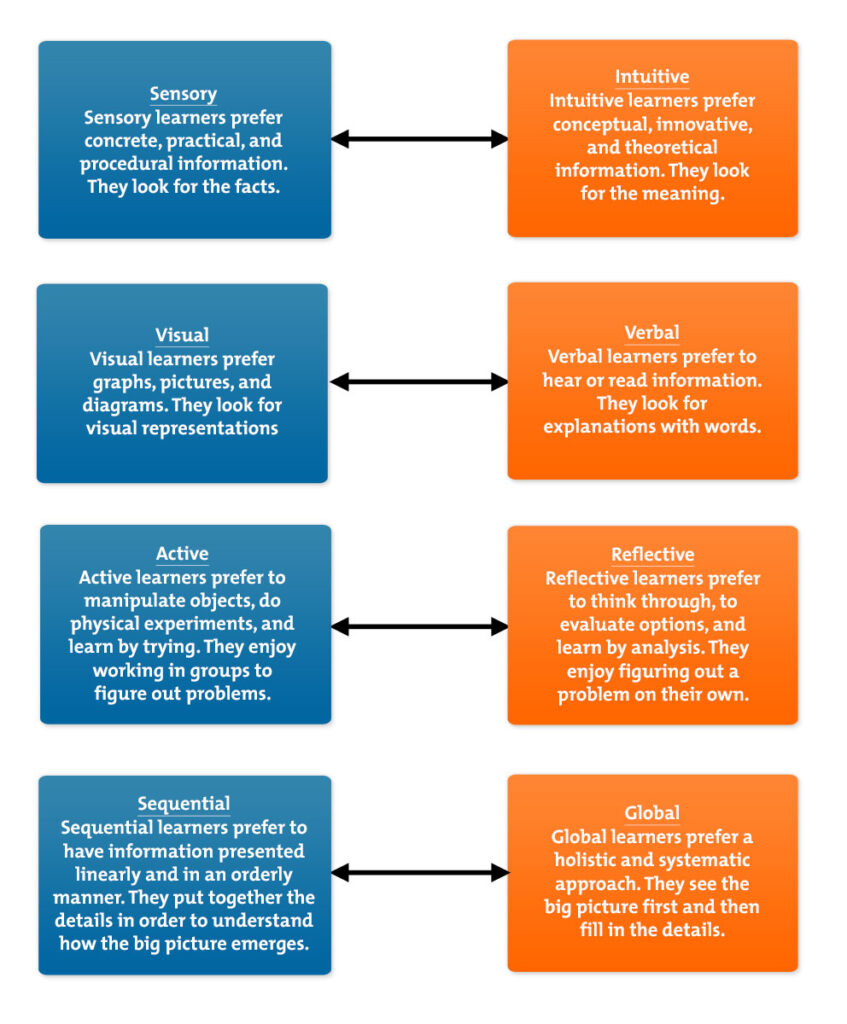
You have so many questions about where you want to work in sports. You want to find the right path with a great salary that fits your personality and personal values.
This is where a mentor comes in. They’re essential in helping you manage your career. A great mentor does the following:
- Involves you in hands-on learning opportunities
- Identifies where you should improve
- Assists with professional goal setting
- Provides honest feedback on ideas
- Introduces you to valuable industry connections
- Acts as a voice of encouragement and support
However, the idea of reaching out to strangers for help can seem daunting. And it should because that’s not how finding a mentor works.
Here’s how you can find the perfect mentor for your sports career:
Understand Your Learning Style
Everyone learns differently. When you know your preference, you can find the best mentor who fits your style.
One of the most popular models of learning styles is the Index of Learning Styles. According to it, there are four dimensions that act as a continuum, with learning preferences on the far left and right.
Here’s a look at these continuums:

To get a better idea of your learning style, take the Index of Learning Styles Questionnaire.
Identify Your Personality Type
Next, develop a clear understanding of where you fall on the personality type spectrum. This will show you how you recharge and help you determine what your mentor’s personality should be.
One of the most widely used personality classifications is the Myers–Briggs Type Indicator. This questionnaire indicates your different psychological preferences in how you perceive the world and make decisions.
You select basic preferences from each of these four dichotomies:
- Favorite world:
- Extraversion – you prefer to focus on the outer world
- Introversion – you prefer to focus on the inner world
- Information
- Sensing – you prefer to focus on the basic information you take in
- Intuition – you prefer to interpret and add meaning
- Decisions
- Thinking – you prefer to first look at logic and consistency when making decisions
- Feeling – you prefer to first look at people and special circumstances to make decisions
- Structure
- Judging – you prefer decisiveness when dealing with the outside world
- Perceiving – you prefer to stay open to new information and options from the outside world
By taking the test, you learn how you interact with your surroundings and how you perceive the world. This helps you better understand how you want to interact with your mentor and what personality best suits your needs.
Define Ideal Mentors
Before you start researching real people, create the perfect persona. Base your ideal mentor on what you know about your personality and learning style.
For example, let’s say you’re more introverted. This means you typically feel drained by being in social situations. You might prefer a mentor who likes to communicate via text, email, and social media than one who likes to meet in person on a regular basis.
If you’re more of an extrovert and prefer active learning, then your ideal mentor will get you involved in projects and provide more hands-on learning experiences.
Paint your picture of this ideal mentor, then start your search.
Research Contacts
When you know where you want to work in sports, begin researching contacts in that field. Let’s say you want to work at a sports media company and aspire to be a creative director. Research potential employers, then look for contact information for creative directors.
You can even directly reach out through Linkedin. If you can’t get through to creative directors, start contacting others who work at the same company.
One of the best ways to meet people who work in sports is by joining professional organizations within the sports industry. In fact, our survey found that employers say joining these groups is the best way candidates can expand their network.
Start the Relationship
Don’t lead by asking them to be your mentor. Instead, focus on building a relationship. Connect with people online and in-person and stay engaged with them.
As you develop rapport, be respectful and don’t ask for much. Just focus on being yourself and providing whatever value you can. For example, send your mentor ideas for a specific project he mentioned he’s working on.
Don’t be rude or overly pushy. This gesture shows you want to help, and it puts the ball in their court. If they like your ideas, they can use them. If they don’t, it doesn’t hurt anyone.
Then, when the time is right, schedule an informal get-together to meet in person and ask them to be your mentor. Be specific — lay out your goals for a mentorship, determine how much time and attention you think you’ll need, and establish clear boundaries upfront. This way, they can respectfully accept or decline.
When you know you want to work in sports but need some direction in planning your career, a mentor is your best option. However, you need to pick someone who works best with you and can empower you to define yourself in the sports world.
—
How are you finding mentors who work in sports? Share in the comments!






